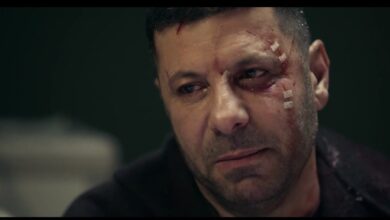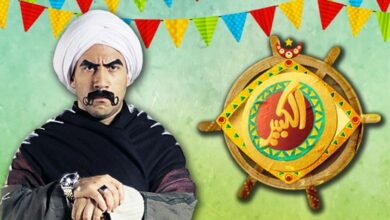Adapting cultural productions to reflect on the 25 January revolution was met with limited success in the film industry. Still, some TV producers opted, to give it a shot this Ramadan season.
TV series such as “Eid Wahda” (One Hand) went all the way, portraying corrupt government officials and formerly-ruling National Democratic Party members, as well as a group of young activists, led by a middle-aged man who’s been living in exile and publishing texts critical of Hosni Mubarak such as “The Dictator and His Family.”
In one scene a member of the April 6 Youth Movement is detained by State Security; when someone asks how he can help, a friend immediately answers, “If you want to help us, you must believe in our cause and support us through your Facebook page.”
While cliched representations of the revolution are becoming more common in Egyptian drama and film, some TV producers were able to adopt a subtler and hence more successful approach. “Al-Shawari Al-Khalfeyah” (Back Streets), directed by Gamal Abdel Hamid, is one good example.
Based on Abdel Rahman al-Sharqawi’s 1958 novel of the same title, the series is set on the historical Aziz Street in Sayeda Zeinab, which witnessed mass protests in the '30s and '40s by students against occupying British forces. Whereas screenwriter Medhat al-Adl makes no mention of the 25 January revolution, he explained in previous statements to the press that he wrote the series in the spirit of 25 January and that analogies can be drawn between the conditions leading up to the protests in the '30s and in 2011.
“Back Streets” was previously adapted into a film, play, as well as a radio and TV series, yet in this version Adl seeks to highlight values of peaceful coexistence among middle class Egyptians in the early 20th century. As a TV series, "Back Streets" presents this sociocultural context through a love story that unfolds between a military officer, Shoukry Abdel Aal, and his neighbor Soad.
Abdel Aal (played by Syrian actor Gamal Soliman) is forced into early retirement after refusing to fire at students protesting against British rule. Retired in an old building he owns on Aziz Street, he feels lonely and useless after his wife passes away and his two daughters grow up.
Soad (Laila Elwy) is a beautiful widow who works as a seamstress. Through this love story, a genre that Soliman has mastered – especially after his role in last year’s series “Love Story” opposite the actress Basma – viewers are introduced to different characters living on the same street, forming a complex mosaic of the community at this period of time.
We are introduced to the revolutionary Marxist law student, the fame-seeking housewife who wants to become an actress, and the elitist upper-class woman who comes to live on Aziz Street after marrying a middle-class man.
So far, the series is still centered on the love story. With cultural norms and traditions disapproving of relationships outside marriage, the lovers shake hands or wait in the terrace to get to see and wave at one another. The dialogue is highly romantic – at times even exaggerated and tiring. Still, the set design, costumes and vocabulary used comes off as a true representation of life in the city at the time.
As this period was characterized by increased dissidence against colonial powers in Egypt, “Back Streets” shows how different political groups fought for their freedom. And when the military leaders are changed, Shoukry is asked to return to his job. After they agree to his conditions – namely not helping quell anti-British protests – Shoukry agrees to take his job back, yet his decision is frowned upon by many of his neighbors, who see it as treachery.
Throughout the episodes, the political goes hand-in-hand with the social and cultural. And although the novel is well known, through his adaptation Adl keeps his viewers engaged by constantly linking the past to the present and raising questions that are pertinent after 25 January.




